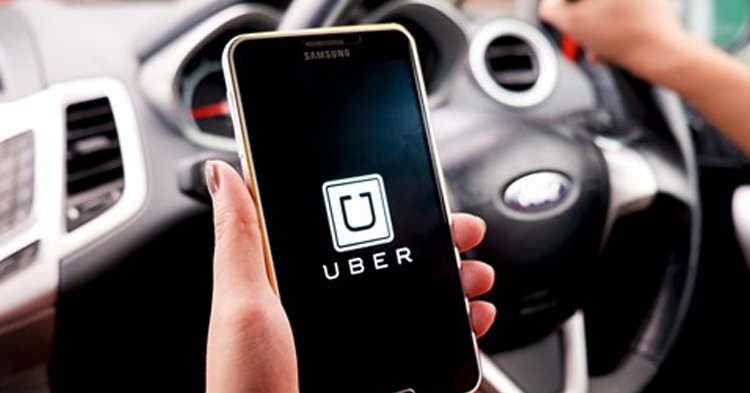Why you can ditch your car and Uber instead
It’s based on a simple idea: tap a button, get a ride… All conceived one snowy night in Paris in 2008 when Travis Kalanick and Garrett Camp struggled to hail themselves a taxi.
It’s been three years since Uber launched here is SA and continues to gain popularity with half a million South Africans having taken an Uber ride so far (according to an article by Business Day Live on why Uber’s South African target market is distinctive). In fact, the SA market is such a force to be reckoned with that we are the chosen country for the Uber cash payment pilot programme, launched last week.
But the question that we’ve all been wondering is: is Uber an occasional service you use when you’re going jolling or need a ride to the airport or can you actually ditch your car or boot public transport altogether and catch an Uber instead?
In short, the answer is yes. You absolutely can – Uber is a realistic transport alternative! As with all things in life, there are exceptions to the rules, but more on that later. First, let’s do a quick comparison.
What is the most affordable way to commute?
Travelling by minibus taxi from Clearwater Mall in the west of Johannesburg to Ellis Park stadium in the heart of Jozi will set you back R12 (one way) for the 45-odd minute journey. By contrast, according to Uber’s fare estimator, the cheapest Uber ride on the same route will set you back R186 (one way) for exactly 30km.
Similarly, travelling by taxi from Sandton City to Brightwater Commons in Randburg will cost you R9 (one way). The cheapest Uber ride comes in at about R62 (one way) for the 8.1km-trip in question.
Sure, that’s a huge difference, but anybody who has ever used Uber will tell you that it’s money well spent… Not only will an Uber driver pick you up and drop you off exactly where you need them to, but you get a comfortable ride and that allows you to work, read or sleep while your driver safely gets you from A to B.
What about if you own a car?
Ok, so while we have established that it’s not the cheapest way to get around town, the next question is whether it’s cheaper than owning a car? This is where things become interesting…
Let’s say you live in Parkhurst and work in Melrose Arch. Catching an UberX (the most affordable type of Uber) will cost about R43 for the 5.4km trip. If you make that trip twice daily and work an average 22 days per month, you’ll be paying Uber R1,892 per month.
Of course, you’ll also want to do stuff over the weekend. Perhaps you want to check out the new Mall of Africa in Midrand (at approximately R190 for the round-trip) and you may also need to pick up some stuff from your mom’s place in Soweto (at approximately R380 for a round-trip). That’s an additional cost of approximately R580 a weekend.
Add it all together, you’re looking a worst case scenario of about R4,212 per month.
(That’s R1,892 for ubering to work + (R580 x 4 weekends) = R4,212)
By contrast, let’s say you’re a 27-year old female with a stock standard silver Polo Vivo 1.4 5-door Trendline that you paid R134,000 for in 2014. To repay your R100,000 vehicle loan over four years at 12% interest rate, you’re paying back approximately R3,252 per month. Then, you’re also paying a monthly insurance premium of approximately R1,318 per month to Discovery, a trusted MoneyShop insurance provider.
As mentioned above, let’s say you’re hypothetically doing about 500km per month at 15km per litre – you’ll be paying almost R500 per month in fuel. And that’s not to mention the daily wear and tear or maintenance costs.
In total, the cost of owning a small city car would set you back about R5070 per month. Factor in the cost of new tyres and other daily wear and tear items, the extra E-toll charges, parking costs and paying for services and maintenance and you’re coming in way above five-thousand Randelas per month – making opting for Uber more cost-effective in the long run.
(That’s R3,252 monthly instalment + R1,318 insurance premium + R500 fuel = R5070)
This becomes even more appealing when you consider that you still pay for your car even on days that you aren’t using it, whereas with Uber you’ll simply pay as you go, literally.
Before you decide, consider this:
- With Uber, you get to decide which type of vehicle you’d like to ride in, whether it’s a van for the family or a luxury car for your date out.
- While Ubering, you don’t have the luxury of storing stuff, like your gym equipment, in the boot of the car for after work, so you may be in for some schlepping of bags, etc. to the office on your gym days.
- Expect to pay more for Uber rides on busy days or during peak times (you’ll get an indication of your route’s estimated cost when you hail your Uber car via the mobile app).
- If you’re a family of two or more adults with two or more cars in the household, ditching one of your cars really makes sense. This way you’ve still got access to a vehicle if you need to haul the family around, do the groceries or if you need to travel long distances, while still saving money as you Uber around town.
- Admittedly, Uber is not a great idea if you’re in a profession that requires a vast amount of travelling around the province or country as it will likely become more costly – and Uber isn’t yet available in all South African cities.
- Solely relying on Uber to scoot around requires a little bit more planning than just jumping in your car. You may, for example have to ask your driver to stop on the way home so that you can grab bread and milk (and since Uber charges are based on the time and distance travelled, this may impact your fare).
- You can now even seperate your business and personal travel on Uber here.
Considering the huge amount of flexibility ditching your car and opting for Uber gives you, paired with the fact that you’ll likely save yourself some cash (if you’re in hotspots like Joburg, Durbs and the mother city that is), it becomes viable to make use of Uber for your inner-city travels. Just remember that you’ll need to plan your movements to maximise your savings and make sure that you have enough data on your cellphone to hail an Uber using the app.
MoneyShop





